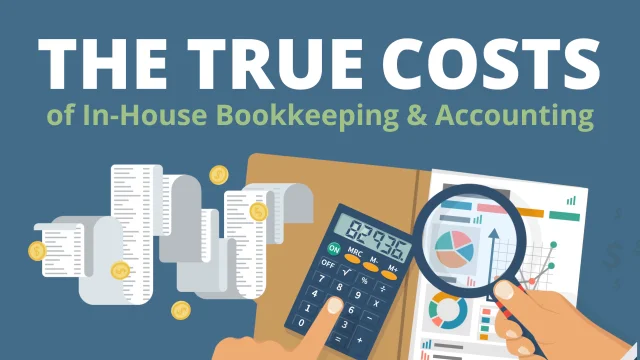8 min read

The topic of inflation has been all over the news. If you do your household shopping, drive a car that runs on gasoline, enjoy eating out, purchase plane tickets, or take a look at the ledger of your business's recent expenses, then you're already well aware of the steep increase in prices that our nation is experiencing.
|
Key Takeaways
|
In fact, in March 2022, the consumer-price index rose by 8.5% – a 40-year high record – and by a close 8.3% in April [1]. While April's index represents a slight slowing in inflation, we clearly aren't out of the woods yet.
To understand how inflation affects your business and what you can do to protect your business, it helps to first familiarize yourself with the concept of inflation while also considering some of the countless factors that can cause and contribute to changing inflation rates.
What Is Inflation?
Inflation is defined as the rate at which the purchasing power of any specific currency declines over a given period of time. Inflation is marked by the increase in the prices of certain goods and services which occurs as a result of the weakened purchasing power of the currency. For example, as a result of inflation, a specific unit of currency has the power to purchase less of a specific good or service than it could before inflation occurred.
Many people assume that inflation is an increase in the cost of goods and services. However, as you can see, this is incorrect. In simple terms, cost increases are a symptom of inflation; the devaluation of currency leads to an increase in the cost of goods and services.
Why Is Inflation So High?
Myriad factors can contribute to the devaluation of currency and inflation. However, most economists agree that, generally, inflation occurs when a nation's supply of money grows at a more rapid rate than that of the nation's economy [2].
One situation which can lead to inflation occurs when a government creates new money either by increasing the amount (or decreasing the cost) of available debt or by printing new currency at a rate that is not equally matched by economic growth. The excess buying power that this new money creates in the economy drives up consumer demand, and this demand cannot be easily met by the supply that has not increased at an equal rate. As a result, supply becomes scarce and prices increase.
Another situation that can lead to inflation occurs when supply is cut off as a result of supply chain issues. This also results in supply not being able to keep up with consumer demand and a subsequent increase in prices.
Today, the United States is in a perfect storm of inflation with inflation occurring as a result of both situations happening simultaneously. Economic relief measures, new tax credits, and a general increase in the money supply that has been generated as a result of COVID relief measures have increased consumer demand. Simultaneously, housing shortages, energy crisis concerns, and worldwide supply chain issues have decreased the supply that's available to meet the increased consumer demand, thereby deflating the U.S. dollar's purchasing power and leading to record-breaking inflation rates.
The Business Challenges of Inflation
Increased Cost of Goods Sold
As a business, inflation has a multifaceted effect on your operations. Perhaps, most obviously, inflation leads to an increased cost of goods sold. Whether your company is affected by rising fuel prices, food prices, construction material prices, elevated office space rents, or another commodity, the purchasing power of your business's free cash is decreasing just like the purchasing power of everyone else's U.S. dollars.
Employee Satisfaction and Employee Retention
In addition to navigating the challenges of increasing costs and disrupted supply chains, it's also essential for business owners to be mindful of the effects that inflation has on their employees. As a business owner (or as a business owner who likes to hold onto their employees), it's your responsibility to ensure your people are happy in their jobs.
Read More: Why Employee Retention Is Important And How To Improve It
This means ensuring that all of their needs are met, starting with the most basic: their ability to afford the basic necessities of life such as housing, food, security, and clothing. So, as inflation rates increase, you might also be met with the need to, at the very least, increase employee wages at the same rate as inflation so that your people do not indirectly suffer a pay cut.
If you fail to keep your employees satisfied and engaged in their jobs during difficult economic times, you could start to suffer increases in your employee attrition rates, and the cost of replacing your people can be staggeringly high.
Supply Chain Disruption
Additionally, the increased stress that inflation puts on supply chains also complicates business operations. You might struggle to maintain your own ability to operate as a result of stymied supply and delayed shipments of materials. As a result, this slows your sales cycle and might also lead to the need to look to new suppliers.
5 Strategies to Help Your Business Thrive in the High-Inflation Economy
1. Continuously Optimize Pricing
As your cost of doing business increases, you need to adjust your prices to accommodate the increasing costs in order to safeguard your profit margins. This means keeping careful track of all your business's costs, including direct labor and materials in addition to indirect labor and materials. Both direct and indirect costs should be carefully allocated to the products and services you offer so that you can optimize your pricing for built-in profit margins that shelter your business from the decreasing purchasing power of the dollar.
Read More: Don't Be a Pricing Coward! Get This Under Control...
If you are concerned that you might lose customers as a result of increasing your prices, remember that everyone is feeling the effects of inflation, most businesses are increasing their prices as a result, and no one will be surprised if you need to increase prices, too.
2. Preserve Value: Don't Lose Sight of Your Business's Purpose
As long as you continue to focus on your business's purpose and what sets it apart from the competition, you won't lose customers. Continue to provide high-value products and/or services that solve your customers' problems and meet their needs.
By maintaining this focus and not sacrificing the value your company provides, you will do a better job of holding onto your clients than competitors that devalue or cheapen their products and services as a result of increasing costs. As the saying goes, it is better to buy something of high quality once than to buy something of low quality several times.
3. Consider Outsourcing
Outsourcing the non-core functions of your business, especially as an inflation survival strategy, can help your organization thrive in several ways. One of the best ways for businesses to make the most of their limited resources is to outsource non-core competencies.
The most obvious (and immediate) benefit of outsourcing is the reduction in overhead costs. The cost of an outsourced team is notably cheaper than an in-house employee.
Does It Make Sense for Your Business to Outsource Your Bookkeeping and Accounting Function? 🧐

Outsourcing vs. In-House Accounting Cost Comparison
Not only does this provide you with a more cost-effective solution, but outsourcing also affords you access to industry experts in every department. The intangible value outsourcing adds is freeing up the minds of your employees (and yourself) to focus on high-level, profit-driving work.
Moving these processes out-of-house can help cut costs and optimize operations, all while gaining industry expertise.
4. Focus on Your People
As mentioned above, your people are your greatest asset – high inflation or no inflation. It always pays to invest in your employees, ensure their happiness and satisfaction, and to actively encourage their engagement. Although the stresses of inflation and economic flux likely have most of your attention, do not let the stress of the economy lead to you neglecting your employees.
Make an effort to stay engaged with them and to keep a bead on their own happiness, levels of stress, and the day-to-day challenges that they face while working to make your company successful.
5. Focus on Your Healthiest Revenue Streams
When faced with the challenges of inflation, businesses need to ensure that their dollars are generating the highest possible ROI.
Carefully track your expenses and allocate indirect costs so that you can use unit economics to evaluate profit and loss statements on all of your products and services. You'll find that certain client, job, or product types generate stronger profit margins than others. Focus your energy and attention on the strongest of your revenue channels. This will strengthen profit margins across the board for your company, improving your financial health despite the diminished value in currency.
When the Economy Is in Flux, Don't Lose Sight of Your Numbers
If the economy and inflation are in flux, then you can be certain your business's numbers are too. While a business leader should always know their numbers, keeping a close eye on your financial reports is more important now than ever before because concerning changes can occur rapidly during uncertain economic times.
Whether you need to adjust your pricing to accommodate increased costs or identify your services and products that generate the strongest profit margins, having a solid back office with automated bookkeeping, accounting, and time-tracking processes can ensure you always have access to timely and accurate financial data – whether you need to see your reports on a monthly or weekly basis. With a solid back office at your disposal, you can identify your company's financial weaknesses and profit drivers to shore up your business and focus on its core functions that truly drive growth. With a strong back office, you can find ways not only to help your business survive but to thrive in spite of current inflation.
[1] https://www.wsj.com/articles/inflation-definition-cause-what-is-it-11644353564
[2] https://www.investopedia.com/terms/i/inflation.asp

.png?width=563&height=144&name=New%20GF%20Logo%20(37).png)


